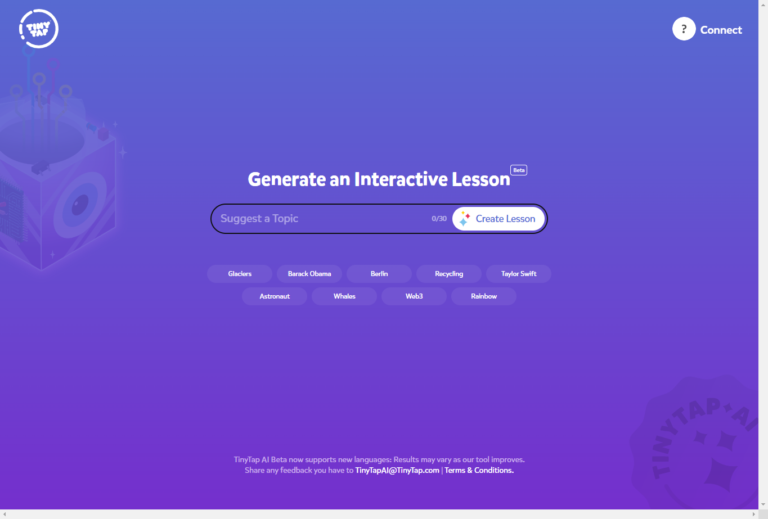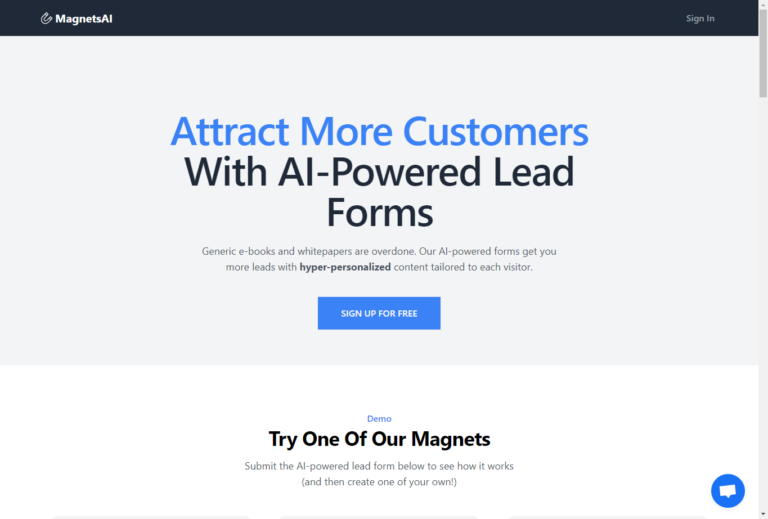
Imagine a world where healthcare is more efficient, accurate, and accessible than ever before. Thanks to the advancements in Artificial Intelligence (AI), this dream is becoming a reality. AI has revolutionized the way medical practitioners and healthcare providers diagnose, treat, and prevent diseases. From early diagnosis of illnesses to personalized treatment plans, AI is transforming healthcare into a proactive and patient-centric field. In this article, we will explore the profound impact of AI in healthcare and how it is shaping the future of medicine. Get ready to be amazed by the possibilities that AI brings to the table!
Overview of AI in Healthcare
AI in healthcare refers to the utilization of artificial intelligence technologies in medical and healthcare settings. It involves the development of algorithms and systems that can perform tasks traditionally performed by humans, such as diagnosing diseases, developing treatment plans, and analyzing patient data. The application of AI in healthcare is revolutionizing the field by enhancing accuracy and efficiency, improving patient outcomes, and enabling personalized care.
Definition of AI in Healthcare
AI in healthcare encompasses a wide range of technologies and applications. It includes machine learning, natural language processing, image and speech recognition, robotics, and expert systems. These technologies are used to analyze large volumes of data, identify patterns, and make predictions or recommendations based on the findings. AI in healthcare can be thought of as a combination of advanced data analytics and intelligent decision-making systems.
Importance of AI in Healthcare
The importance of AI in healthcare cannot be overstated. It has the potential to transform healthcare delivery and improve patient outcomes in numerous ways. By leveraging AI technologies, healthcare providers can enhance accuracy and efficiency in diagnosis and treatment, personalize patient care, and increase access to healthcare services. AI in healthcare also has the potential to address the growing challenges faced by the healthcare industry, such as workforce shortages and rising healthcare costs.
Current State of AI in Healthcare
The current state of AI in healthcare is rapidly evolving. While AI technologies have been used in healthcare for several years, recent advancements in machine learning and data analytics have led to significant progress in the field. AI-driven applications are being developed and implemented in various healthcare settings, including hospitals, clinics, and research institutions. From automated diagnosis and virtual nursing assistants to AI-driven robotic surgery, the potential applications of AI in healthcare are vast.
Applications of AI in Healthcare
Automated Diagnosis and Disease Identification
One of the most promising applications of AI in healthcare is automated diagnosis and disease identification. By analyzing large datasets of patient information, AI systems can accurately detect and classify diseases. These systems can analyze medical images, laboratory results, and patient records to provide accurate and timely diagnoses. Automated diagnosis can expedite the diagnostic process, ensure consistency, and reduce the burden on healthcare professionals.
Precision Medicine and Treatment
AI in healthcare is playing a crucial role in the advancement of precision medicine and treatment. Precision medicine aims to tailor medical treatments to individual patients based on their unique genetic makeup, lifestyle, and environment. AI technologies can analyze vast amounts of patient data to identify patterns and make personalized treatment recommendations. By considering individual patient characteristics, AI systems can optimize treatment plans and improve patient outcomes.
Virtual Nursing Assistants
Virtual nursing assistants are AI-powered systems that provide assistance and support to patients in a virtual setting. These assistants can answer questions, provide educational resources, and monitor patient progress. Virtual nursing assistants can alleviate the workload of healthcare professionals, enhance patient education and engagement, and improve patient outcomes.
Drug Discovery and Development
AI technologies are revolutionizing the process of drug discovery and development. By analyzing vast amounts of biological and chemical data, AI systems can identify potential drug candidates and predict their effectiveness. AI-driven drug discovery can accelerate the development of new treatments, reduce costs, and improve patient access to innovative therapies.
Healthcare Data Management and Analysis
AI in healthcare is transforming the way healthcare data is managed and analyzed. AI systems can analyze large volumes of patient data, such as electronic health records and medical images, to identify patterns and trends. This analysis can help healthcare providers make informed decisions, improve patient outcomes, and enhance the overall quality of care.
Personalized Patient Care
AI technologies enable personalized patient care by considering individual patient characteristics and preferences. By analyzing patient data, AI systems can generate personalized treatment plans, recommend lifestyle modifications, and provide targeted interventions. Personalized patient care can improve treatment outcomes, enhance patient satisfaction, and promote patient engagement.
Remote Patient Monitoring
AI in healthcare enables remote patient monitoring, allowing healthcare providers to monitor patients’ health status and vital signs remotely. By leveraging wearable devices and AI algorithms, healthcare providers can detect early warning signs, monitor chronic conditions, and intervene when necessary. Remote patient monitoring can improve patient convenience, reduce hospital readmissions, and enhance patient outcomes.
AI-driven Robotic Surgery
Robotic surgery, powered by AI technologies, is revolutionizing the field of surgery. Robotic surgical systems can assist surgeons during complex procedures, enhance precision and dexterity, and reduce the risk of complications. AI-driven robotic surgery can improve surgical outcomes, reduce recovery times, and expand access to high-quality surgical care.
Healthcare Administrative Tasks
AI in healthcare is also transforming healthcare administrative tasks. AI systems can automate processes such as appointment scheduling, medical billing, and paperwork management. By streamlining administrative tasks, AI technologies can improve efficiency, reduce costs, and free up healthcare professionals’ time to focus on patient care.
Improving Mental Health Diagnosis and Treatment
AI technologies have the potential to improve mental health diagnosis and treatment. AI algorithms can analyze patient data, such as electronic health records and social media activity, to identify patterns and indicators of mental health conditions. AI-driven mental health tools can facilitate early detection, personalize treatment plans, and provide support and resources to individuals with mental health conditions.
Benefits of AI in Healthcare
Improved Accuracy and Efficiency
AI in healthcare improves accuracy and efficiency by automating processes and analyzing large volumes of data. AI algorithms can quickly and accurately analyze patient data, leading to more accurate diagnoses and treatment plans. By automating repetitive tasks, AI technologies also free up healthcare professionals’ time, allowing them to focus on more complex and critical aspects of patient care.
Enhanced Patient Care and Outcomes
AI technologies enhance patient care and outcomes by enabling personalized treatment plans, improving monitoring and intervention, and promoting patient engagement. By analyzing patient data, AI systems can generate personalized treatment recommendations that consider individual patient characteristics. AI technologies also enable remote patient monitoring, allowing healthcare providers to intervene early and prevent adverse events.
Cost Reduction and Resource Optimization
AI in healthcare has the potential to reduce healthcare costs and optimize resource utilization. By streamlining administrative tasks, automating processes, and improving efficiency, AI technologies can reduce operational costs. AI-driven systems can also optimize resource allocation by predicting demand, optimizing schedules, and reducing waste.
Time Saving for Healthcare Professionals
AI technologies save time for healthcare professionals by automating tasks and streamlining workflows. By automating administrative tasks, such as appointment scheduling and medical billing, AI systems free up healthcare professionals’ time to focus on patient care. AI technologies can also assist in the analysis of patient data, leading to more efficient diagnosis and treatment planning.
Early Detection and Prevention of Diseases
AI in healthcare enables early detection and prevention of diseases by analyzing large volumes of patient data and identifying patterns or warning signs. By analyzing patient data, AI systems can detect subtle changes or indicators of diseases at an early stage when interventions are more effective. Early detection and prevention can lead to improved patient outcomes and reduced healthcare costs.
Empowering Patients with Personalized Insights
AI technologies empower patients by providing personalized insights and recommendations. By considering individual patient characteristics, preferences, and goals, AI systems can generate personalized treatment plans, recommend lifestyle modifications, and provide educational resources. Patient empowerment fosters engagement, improves treatment adherence, and enhances overall patient satisfaction.
Facilitation of Medical Research and Innovation
AI in healthcare facilitates medical research and innovation by analyzing vast amounts of data and identifying patterns or trends. AI technologies can accelerate the discovery of new treatments, improve the efficiency of clinical trials, and facilitate data-driven decision-making in research and development. By enabling data analysis at scale, AI systems contribute to the advancement of medical knowledge and innovation.
Addressing Healthcare Workforce Shortages
AI technologies can help address healthcare workforce shortages by automating tasks and augmenting healthcare professionals’ capabilities. By automating administrative tasks and streamlining processes, AI systems alleviate the workload of healthcare professionals, increasing their efficiency and productivity. AI technologies can also assist in decision-making, enhance accuracy and consistency, and enable healthcare professionals to focus on complex patient care.
Supporting Mental Health Management
AI in healthcare supports mental health management by analyzing patient data and providing resources and support. AI algorithms can analyze patient data, such as social media activity or electronic health records, to identify patterns or indicators of mental health conditions. AI-driven mental health tools can help individuals manage their mental health, provide resources and support, and facilitate early detection and intervention.
Ensuring Patient Privacy and Data Security
AI in healthcare involves the analysis of sensitive patient data, such as medical records and genetic information. Ensuring patient privacy and data security is of paramount importance. Healthcare organizations must implement robust security measures, encryption protocols, and access controls to protect patient data. Ethical considerations and legal frameworks must also be considered to safeguard patient privacy and maintain confidentiality.
Challenges and Limitations
Human-AI Collaboration and Trust
Human-AI collaboration and trust are critical in the successful implementation of AI in healthcare. Healthcare professionals must trust and be confident in the AI systems they use, understanding the limitations and potential pitfalls. Collaboration between humans and AI is essential to leverage the strengths of both and ensure optimal patient care.
Data Quality and Standardization
Data quality and standardization pose challenges in AI-driven healthcare. The accuracy, completeness, and standardization of data are essential for the success and reliability of AI systems. Efforts must be made to ensure data quality, including standardizing data collection methods, improving interoperability between systems, and addressing data bias and errors.
Ethical Considerations and Bias
Ethical considerations and bias are important challenges in AI in healthcare. AI systems must be developed and implemented in a way that avoids bias, discrimination, and unfairness. Algorithms must be tested for bias and continually monitored to minimize disparities in healthcare outcomes. Transparency, accountability, and ethical frameworks must guide the development and use of AI in healthcare.
Regulatory and Legal Implications
AI in healthcare raises regulatory and legal implications that must be addressed to ensure patient safety and privacy. Regulations must be in place to govern the collection, storage, and use of patient data. Legal frameworks must also address issues such as liability, accountability, and patient consent in the context of AI in healthcare.
Data Privacy and Security Risks
Data privacy and security risks are significant challenges in AI-driven healthcare. The analysis and storage of sensitive patient data require robust security measures to protect against unauthorized access or breaches. Privacy-enhancing technologies, encryption, and access controls must be implemented to safeguard patient information.
Lack of Infrastructure and Interoperability
The lack of appropriate infrastructure and interoperability is a limitation in the implementation of AI in healthcare. Advanced hardware, software, and data storage capabilities are necessary to support AI systems. Interoperability between different healthcare systems and data sources is also crucial to enable data sharing and analysis.
Integration with Existing Healthcare Systems
Integrating AI systems with existing healthcare systems can be challenging. AI technologies must be seamlessly integrated into the existing infrastructure, workflows, and clinical practices. Compatibility, interoperability, and user acceptance must be addressed to ensure successful integration and adoption of AI in healthcare.
Provider and Patient Adoption
Provider and patient adoption of AI in healthcare can be a challenge. Healthcare professionals may be resistant to change or skeptical about the accuracy and reliability of AI systems. Patient acceptance may also vary due to privacy concerns or a lack of understanding about AI technologies in healthcare. Education and training programs are key to overcoming these challenges and promoting adoption.
Cost of Implementation
The cost of implementing AI in healthcare can be a significant barrier for many healthcare organizations. AI technologies require investment in the acquisition of hardware, software, and training. The cost of maintaining and updating AI systems must also be considered. Healthcare organizations must carefully assess the return on investment and potential benefits when considering the implementation of AI technologies.
Impact on Healthcare Workforce
The implementation of AI in healthcare may have implications for the healthcare workforce. While AI technologies can enhance efficiency and productivity, they may also lead to workforce displacement and job restructuring. Healthcare organizations must carefully manage the transition to AI-driven healthcare to mitigate any negative impacts on the workforce and ensure the effective utilization of human resources.
Future Perspectives and Trends
AI-powered Decision Support Systems
AI-powered decision support systems will play a crucial role in healthcare in the future. These systems will leverage AI algorithms to analyze patient data, provide recommendations, and assist healthcare professionals in making informed decisions. AI-powered decision support systems have the potential to enhance accuracy, reduce errors, and improve patient outcomes.
Advancements in Predictive Analytics and Early Detection
Advancements in predictive analytics and early detection will revolutionize disease prevention and management. AI technologies can analyze large datasets to identify patterns, predict disease risk, and enable early interventions. The ability to predict diseases before symptoms manifest can lead to more effective preventive strategies and personalized interventions.
Robotics and AI in Surgery
Robotics and AI technologies will continue to advance the field of surgery. AI-driven robotic surgical systems can assist surgeons in complex procedures, improve precision, and minimize complications. Robotics and AI in surgery have the potential to revolutionize surgical techniques, increase surgical success rates, and improve patient outcomes.
Virtual Reality and Augmented Reality Applications
Virtual reality (VR) and augmented reality (AR) applications will enhance patient engagement and education. VR and AR technologies can be used to create immersive experiences for patients, providing them with a better understanding of their conditions, treatment plans, and surgical procedures. VR and AR can also be used for training healthcare professionals and enhancing their skills.
Blockchain Technology in Healthcare
Blockchain technology will have a significant impact on healthcare by enhancing data security, interoperability, and patient privacy. Blockchain technology provides a decentralized and secure way of storing and sharing patient data, ensuring transparency and control over personal health information. Blockchain can also enable secure sharing of medical records and facilitate research collaborations.
Collaboration between Humans and AI
Collaboration between humans and AI will be crucial for the successful implementation of AI in healthcare. Rather than replacing healthcare professionals, AI technologies will augment their capabilities and assist in decision-making. The collaboration between humans and AI will leverage the strengths of both and lead to improved patient outcomes.
Increased Patient Engagement and Empowerment
AI technologies will empower patients by providing them with personalized insights, resources, and support. Through AI-driven applications, patients can actively participate in their healthcare decisions, access educational resources, and receive personalized recommendations. Increased patient engagement and empowerment can lead to better treatment adherence and improved health outcomes.
Integration of AI with Internet of Things (IoT)
The integration of AI with the Internet of Things (IoT) will enable the collection and analysis of real-time patient data. IoT devices, such as wearable sensors and smart home devices, can generate vast amounts of data that can be analyzed by AI systems. This integration will provide healthcare professionals with valuable insights into patients’ health status, enable remote monitoring, and facilitate personalized interventions.
Expanding Access to Healthcare in Underserved Areas
AI in healthcare has the potential to expand access to healthcare services in underserved areas. By leveraging AI technologies, healthcare can be delivered remotely, overcoming geographic barriers and improving healthcare access. AI-driven telemedicine platforms and virtual healthcare services can connect patients with healthcare professionals, provide medical consultations, and facilitate the delivery of care to remote or underserved communities.
AI for Precision Public Health
AI technologies will play a crucial role in precision public health, which aims to tailor public health interventions to specific populations or individuals. AI algorithms can analyze population health data, identify patterns, and predict disease outbreaks or trends. By combining individual patient data with population-level insights, AI in precision public health can help optimize resource allocation, prioritize interventions, and improve public health outcomes.
Ethical Considerations in AI Healthcare
Ensuring Transparency and Explainability
Transparency and explainability are essential in AI healthcare. AI systems should provide clear explanations of how decisions are made and the factors that influence outcomes. Users should have access to information about the data used and the algorithms applied. Transparency and explainability promote trust, ethical decision-making, and accountability.
Avoiding AI Bias and Discrimination
AI systems must be developed and implemented in a way that avoids bias and discrimination. Algorithms must be regularly tested for bias and fairness and adjusted as needed. Data used to train AI systems should be diverse and representative of the population. Developers and healthcare professionals must be aware of potential biases and work to minimize their impact.
Respecting Patient Autonomy and Informed Consent
Respecting patient autonomy and informed consent is crucial when using AI in healthcare. Patients should have control over their health data and be properly informed about how AI technologies are used and the potential implications. Informed consent should be obtained before using patient data for research or AI-driven applications.
Safeguarding Patient Privacy and Confidentiality
Safeguarding patient privacy and confidentiality is paramount in AI healthcare. Healthcare organizations must implement robust security measures, encryption protocols, and access controls to protect patient data. Stricter regulations and policies are needed to ensure that patient information is not compromised or accessed without appropriate permission.
Defining the Responsibility and Accountability of AI Systems
Defining the responsibility and accountability of AI systems is critical in AI healthcare. Clear guidelines and frameworks should be established to determine who is responsible for the actions and decisions made by AI. Developers, healthcare organizations, and regulators must collaborate to establish accountability mechanisms and ensure the ethical use of AI technologies.
Regulating AI in Healthcare
AI in healthcare should be subject to appropriate regulations and guidelines to ensure patient safety and promote ethical practices. Regulatory frameworks must be established to govern the development, implementation, and use of AI technologies. These regulations must address issues such as data privacy, security, transparency, and patient consent.
Education and Training on AI Ethics
Education and training on AI ethics are essential for healthcare professionals and developers working with AI in healthcare. Healthcare professionals should be educated on the benefits and limitations of AI technologies, as well as ethical considerations and potential biases. Developers should be trained on the ethical development and use of AI systems in healthcare.
Conclusion
AI in healthcare holds immense promise for transforming the field and improving patient outcomes. Its applications are vast and include automated diagnosis, precision medicine, virtual nursing assistants, drug discovery, healthcare data management, personalized patient care, and robotic surgery. The benefits of AI in healthcare are numerous, including improved accuracy and efficiency, enhanced patient care and outcomes, cost reduction, and resource optimization. However, challenges and limitations such as ethical considerations, data quality, regulatory implications, and provider adoption must be addressed. The future of AI in healthcare is exciting, with advancements in decision support systems, predictive analytics, robotics, and virtual reality. Ensuring transparency, avoiding bias, respecting patient privacy, and defining responsibility and accountability are crucial in the ethical implementation of AI in healthcare. With the right regulations, education, and collaboration, AI has the potential to revolutionize healthcare and improve the lives of patients worldwide.






